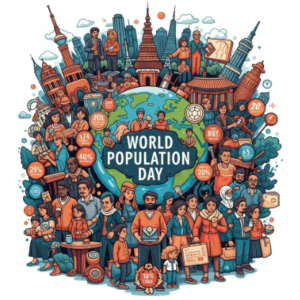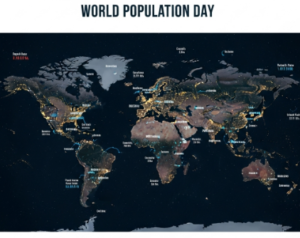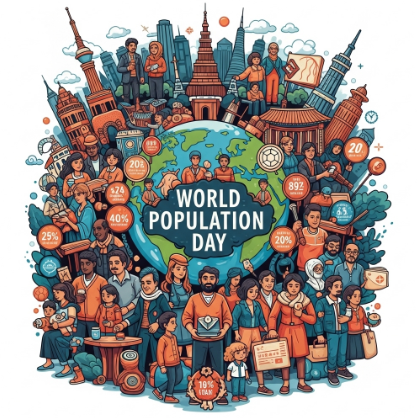World Population Day
You wake up, check your phone, and scroll through the news traffic jams, rising rent prices, crowded subway rides, and longer wait times at your favorite coffee shop. These may seem like isolated inconveniences, but they’re all symptoms of a larger, often overlooked issue: overpopulation.

The world’s population has more than doubled since the 1960s, and while we don’t always connect the dots, this rapid growth is subtly reshaping our daily lives in ways we don’t even realize. Here’s how.
- Longer Commutes and More Traffic
Remember when your daily drive to work took 20 minutes? Now it’s 45. Cities are expanding, more cars are on the road, and public transport is packed. Overpopulation means more people competing for the same infrastructure, leading to gridlock and frustration in places that once had smooth traffic flow.
- The Housing Squeeze
Rent prices keep climbing, and affordable housing is harder to find. Why? More people = higher demand. Cities are becoming denser, pushing people into smaller apartments or farther into suburbs. If you’ve noticed your paycheck stretching thinner while your living space shrinks, overpopulation is a hidden factor.
- Crowded Public Spaces
Your favorite park? Packed on weekends. The gym? Always full. Even grocery shopping feels like a battle for space. Overpopulation means more people sharing the same amenities, leading to longer lines, fewer available resources, and a constant feeling of competition in everyday activities.
- Shrinking Personal Space
From packed elevators to cramped airplanes, personal space is becoming a luxury. Airlines are squeezing in more seats, restaurants are placing tables closer together, and even sidewalks feel more congested. Overpopulation is making the world feel smaller literally.

- Increased Stress and Mental Fatigue
Constant noise, overcrowding, and competition for resources take a toll on mental health. Studies show that urban overpopulation contributes to higher stress levels, anxiety, and even reduced empathy. If you feel more irritable in crowded places, that’s your brain reacting to an overstimulated environment.
- Shortages You Didn’t Expect
- The Decline of “Quiet Time”
Finding a peaceful spot to relax is harder than ever. Beaches, libraries, and even hiking trails are more crowded. The constant presence of others means fewer moments of true solitude a luxury that’s disappearing as populations grow.
What Can We Do?
While overpopulation is a global issue, small changes like supporting sustainable urban planning, advocating for better public transport, and making eco conscious choices can help mitigate its effects. Awareness is the first step; recognizing these subtle shifts can help us adapt and push for smarter solutions.
The next time you’re stuck in traffic, waiting in a long line, or struggling to find an apartment, remember: you’re not just imagining it. Overpopulation is reshaping our world one crowded day at a time.






